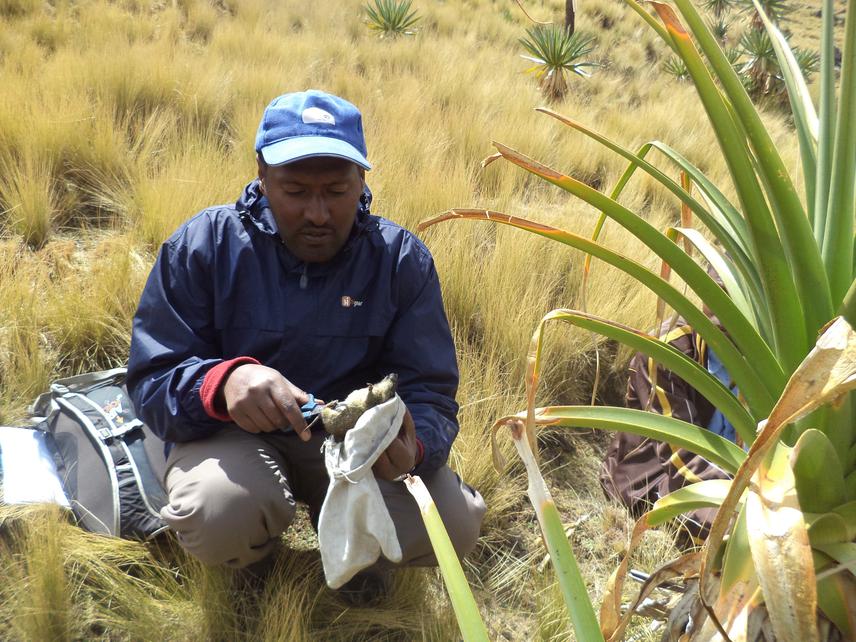Girma Eshete Genbere
This research project aims to better understand the ecology of threatened Ethiopian wolf populations in North and South Wollo Highlands, by means of studying rodent populations, diet of wolves, and factors driving to human-wolf conflict.

Girma marking trapped rodent
Background of the research project:
Ethiopia has the largest extension of Afroalpine ecosystems in the continent and numerous endemics, such as the endangered Ethiopian wolf Canis simensis, a rodent hunter threatened by habitat loss, diseases and conflicts with people over livestock predation. With increasing human populations in the Ethiopian highlands, biodiversity conservation and local livelihoods are compromised. A wide range of farming land use systems have developed around Afroalpine habitats and the livelihoods of highland communities depend on Afroalpine natural resources such as pastures, firewood and water. In view of the persisting human impacts upon natural resources and the vulnerability of Ethiopian wolf populations, the project address the ecological and social issues associated with the conservation of the Afroalpine ecosystems inside and outside protected areas where human density is high and Ethiopian wolf populations small.
Objectives:
- To identify the effects of grazing upon rodents in (abundance and richness) by studying the associations between rodents and micro-topography, vegetation and soil in Afro-alpine areas under different levels exploitation
- To study the diet and foraging strategy of Ethiopian wolves under different scenarios of prey availability and human disturbance
- To explore human wildlife conflicts and attitude due to livestock predation
Overall strategy for activities:
This 12 months Project with £5949 budget is part of my PhD research, which will use standard, well-tested methods for all activities of the project and supervised jointly by conservation biologists working at the Universities of Oxford and Leiden. It also involves field technicians and Wolf Ambassadors representing communities in their local areas.
Impacts and outcomes of the research project:
The project objectives are integrated with the activities and missions of Ethiopian Wolf Conservation Programme and the results will be readily incorporated into the work of this organization. Information materials, educational guidelines and reports will be produced and disseminated to the local community, schools, and to the district conservation offices to build up conservation skills among conservationists and the local community. The project paves the way to enhance local community environmental awareness organising training workshop for community leaders and district level conservationists that discuss about the research result and implementation in the way forward. Then, this project will contribute to design conservation approaches sustain local livelihoods.